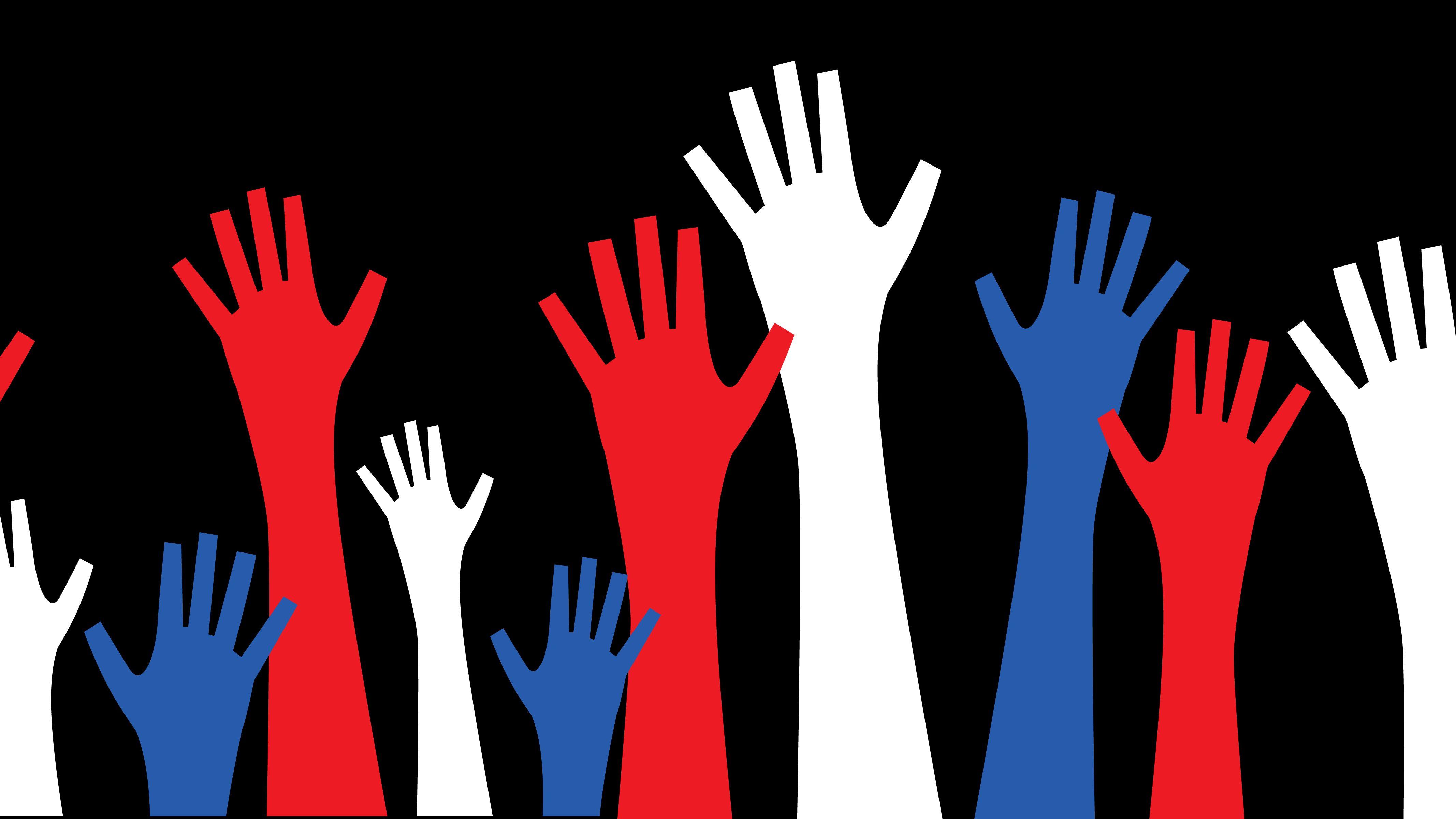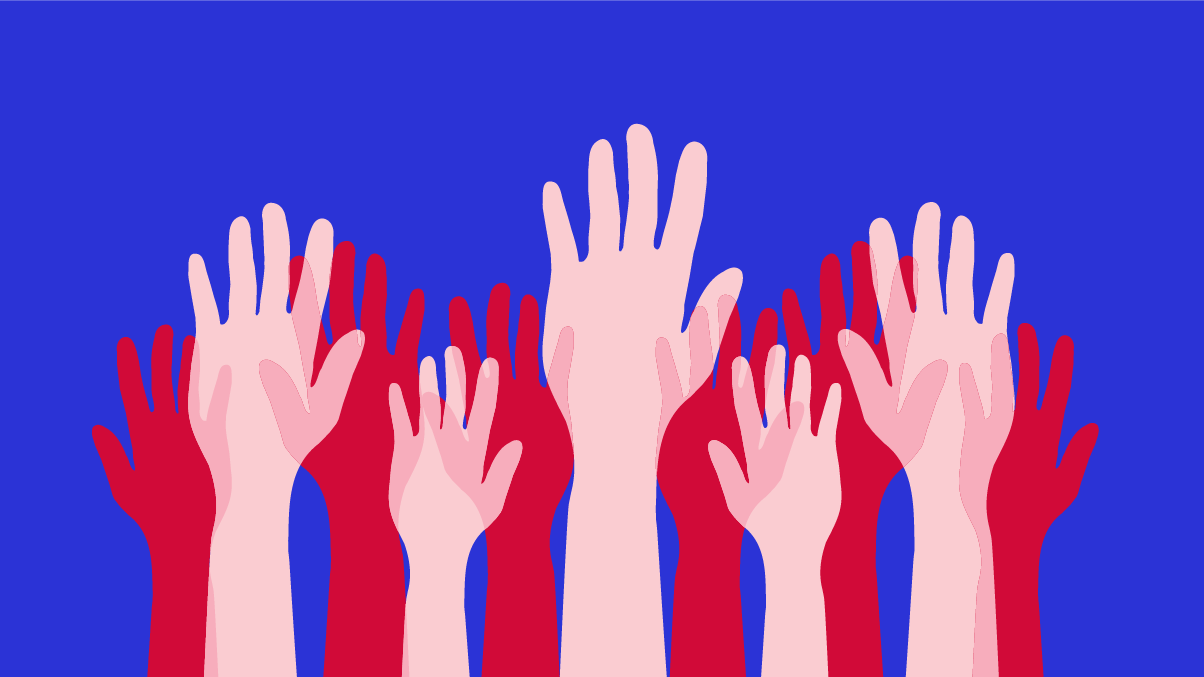How Is a Caucus Different From a Primary? Your Definitive Guide
It's one of the most confusing practices in politics (and that's saying something).


With 20-plus Democratic candidates in the running and Trump vying for reelection, the 2020 presidential race is confusing enough already. So let's clear a few things up—like how you'll be voting this year. Depending on where you live, you'll either participate in a caucus or a primary election. And if you're not sure what the difference is, you've come to the right place.
Caucuses date all the way back to the 1800s and were historically the preferred method for nominating presidential candidates. Since 1968, states have moved toward primary elections instead of caucuses, but caucuses still occur nationwide and can influence elections in a major way. Here’s everything you need to know about this tricky but important voting practice.
So, What Is A Presidential Caucus?
Let’s start with the basics. Before a presidential candidate can win the general election and gain control of an entire country, they have to be chosen as the official nominee by their political party. To do this, the candidate must beat out all of the other contenders within their political party by winning the favor of voters.
Think The Bachelorette, but with less romance and awkward first dates. Contestants continually get booted (cough Luke P) until just two finalists remain. In our case, the final two standing are usually one Republican and one Democratic candidate (though, in recent years, many people are pushing back against the two-party system) who then duke it out for the presidency, not Hannah B's final rose. The Republican and Democratic candidate are decided one of two ways: Through a primary election or a caucus.
Go On…
A caucus is a communal event that helps states decide which candidate they want to serve as their party's nominee. It’s an open meeting that takes place in a public venue, like a school gym or town hall, where registered voters of a given political party talk about their candidates and ultimately decide who they want to support. The following states vote via caucus:
And these US territories also vote via caucus:
- Alaska
- Hawaii
- Iowa
- Kansas
- Kentucky (Republican only)
- Maine
- Nevada
- North Dakota
- Washington (Democratic only)
- Wyoming
And these US territories also vote via caucus:
Get exclusive access to fashion and beauty trends, hot-off-the-press celebrity news, and more.
- American Samoa
- Guam
- The US Virgin Islandslist
REGISTER TO VOTE IN YOUR STATE HERE
Each state is divided into precincts, each of which holds its own caucus. For example, in Iowa’s 2016 election, there were 1,681 precincts, so there were 1,681 different caucuses taking place in the Hawkeye State. Just like a primary election, the purpose of the caucus is to pick the candidate that the precinct supports and to select delegates (representatives of party members in each state) to vote for that pick at the National Convention. Depending on the state, party, and precinct population, a varying amount of delegates are chosen, but the job is the same: They represent the vote on behalf of the people caucusing.
What Happens Once You’re Inside?
The process varies for Democrats and Republicans, but for the most part, it starts out with a group gathering to discuss the candidates. This conversation normally lasts for one to two hours, but Republicans tend to be quicker than Democrats—they can cast secret paper ballots for their preferred nominee. When the votes are counted, and the delegates are selected, the delegates then vote for the winning candidate at the National Convention, where they will publicly nominate them for the presidency.
At a Democratic caucus, attendees physically group in areas of the room to show support for their desired candidates (a practice called aligning) after hearing pitches for each one. During that 30-minute alignment period, people can move to other "preference groups" in an attempt to convince them to switch their allegiance. If one particular preference group does not meet the minimum amount of support (usually 15 percent of the total attendees of the caucus), the attendees must move to another group or remain undecided. At the end of the alignment, delegates are distributed proportionally among the preference groups.
Again, there are some variations in policies depending on your state or political party, but in general, this is how it goes down.
When Does A Caucus Happen?
Caucuses happen in the February or March before the presidential election, and the specific day differs depending on the state. Iowa's caucus takes place first, making it one of the more notable caucuses in the country; while the outcome the Iowa caucus doesn't always predict who will be headed to the House, the results of the caucus are a good indicator of the steps that candidates need to take to better their chances at the presidency. Good or bad, candidates' performances in Iowa can be a sign to either step up their campaigns or to bow out while they still can. Usually, the three candidates with the highest amount of votes in the Iowa caucus are the most likely to win the party nomination, hence the common political adage "three tickets out of Iowa."
In 2020, the Iowa caucus will occur on February 3. Several of the 2020 candidates are already gearing up for this major event, including Joe Biden, who posted a photo to Instagram earlier this month.
A post shared by Joe Biden (@joebiden)
A photo posted by on
Corey Booker, another 2020 candidate, also visited Iowa and thanked the state for its "open arms, hearts and minds."
I truly believe that our love for this country and for one another will win this election. Iowa, that was evident again today—thank you for always welcoming me with open arms, hearts and minds, especially today during the Iowa Hall of Fame celebration. pic.twitter.com/Vp7xJGixcyJune 9, 2019
And Kamala Harris dropped by the Iowa Democrats' Hall of Fame Event to speak to the crowd.
What’s The Difference Between The Primaries And Caucuses?
Primaries are probably what you're more used to. They're run by state governments and operate like a ballot general election, where you vote for your favorite candidate any time during election day.
But there are also two types of primaries: open and closed. Open elections allow for any voter to vote for any candidate, despite their registered political party. Closed primary elections limit voters to only casting their vote within their own political party. For example, if you're a registered republican who doesn't want to vote for Trump in next year's election, you might still have to vote for him, depending on whether you're in a state with a closed primary election or not. Fear not—you can always change your registered political party by contacting your state or local election office or even updating your information online. Just make sure that you're registered to vote by the deadline, which varies per state.
Caucuses, on the other hand, are run by state political parties and occur at a specific time on caucus day. In a primary election, your vote is secret and solitary. In a democratic caucus, your vote is public.
Anything Else I Need To Know?
Caucus voter turnout is notoriously low—partially because the process takes time, but also because it can be a confusing process. In the 2016 election, every caucus state except Iowa had lower than 16 percent voter turnout.
Once you understand the process and devote the time, a caucus can be a great opportunity for political engagement, to learn more about your candidates, and make your voice heard.
For more stories like this, including celebrity news, beauty and fashion advice, savvy political commentary, and fascinating features, sign up for the Marie Claire newsletter.
RELATED STORY

Megan DiTrolio is the editor of features and special projects at Marie Claire, where she oversees all career coverage and writes and edits stories on women’s issues, politics, cultural trends, and more. In addition to editing feature stories, she programs Marie Claire’s annual Power Trip conference and Marie Claire’s Getting Down To Business Instagram Live franchise.

